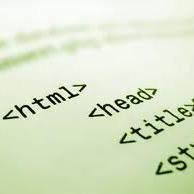Large Language Models (LLMs) demonstrate remarkable capabilities in replicating human tasks and boosting productivity. However, their direct application for data extraction presents limitations due to a prioritisation of fluency over factual accuracy and a restricted ability to manipulate specific information. Therefore to overcome these limitations, this research leverages the knowledge representation power of pre-trained LLMs and the targeted information access enabled by RAG models, this research investigates a general-purpose accurate data scraping recipe for RAG models designed for language generation. To capture knowledge in a more modular and interpretable way, we use pre trained language models with a latent knowledge retriever, which allows the model to retrieve and attend over documents from a large corpus. We utilised RAG model architecture and did an in-depth analysis of their capabilities under three tasks: (i) Semantic Classification of HTML elements, (ii) Chunking HTML text for effective understanding, and (iii) comparing results from different LLMs and ranking algorithms. While previous work has developed dedicated architectures and training procedures for HTML understanding and extraction, we show that LLMs pre-trained on standard natural language with an addition of effective chunking, searching and ranking algorithms, can prove to be efficient data scraping tool to extract complex data from unstructured text. Future research directions include addressing the challenges of provenance tracking and dynamic knowledge updates within the proposed RAG-based data extraction framework. By overcoming these limitations, this approach holds the potential to revolutionise data extraction from vast repositories of textual information.
翻译:暂无翻译




